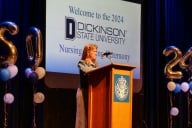You have /5 articles left.
Sign up for a free account or log in.
Andrea Zellner is a Phd student in the Ed Psych/Ed Tech program at Michigan State University. She can be found on Twitter at @AndreaZellner.
Making things is fun. The Maker movement, as it’s commonly known, is centered on the idea that when it comes to technology especially, it’s better and more fun to do-it-yourself than rely on off-the-shelf products. Here on GradHacker, we’ve discussed different ways we’ve gone about doing this to varying degrees. It’s true that GradHackers as a group tend towards doing things ourselves.
Even if you’d rather just use the software off the shelf and not think about it again, there are some lessons from the Maker movement that can be useful ways of being in the Graduate School world. As I’ve been reflecting on my own making of things, I found that this attitude has been useful for me as I struggle with my own motivation, sense of perfectionism, and other pitfalls of graduate student life.
1. Having a concrete finished product is a helpful confidence boost. There is nothing as satisfying as finishing a concrete task. Starting will small tasks, whether it be learning a little bit of HTML or playing around with creating your first robot (I loved making this ArtBot a few years ago: a really quick and easy one), sometimes it’s fun to make something just for the sake of making it.
2. Failure and iteration makes everything better. In DIY and Maker culture, failure is expected and part of the fun. Failure is how I know I am learning something new and that I’ve taken a sufficient risk in trying something. If it came easy right away, then there’s really no point to it. Having a place to fail with no consequences is a nice respite from the churn of graduate school. Really: it’s okay to break it.
3. I’ve never regretted learning how things work. I approach almost all new technologies the same way a kid approaches a new toy: I press ALL of the buttons. I also am a frequenter of help forums and support documentation. While at first I might just be trying to make a Downton Abbey gif, I end up learning a little bit of remix that ends up being incredibly helpful in designing interesting content for my online course. There have been countless times when my habit of pressing all the buttons and figuring out how a technology worked has helped in my course design, research design, and even in my more strictly academic and writing projects.
4 . Flow = Joy. I have never had a Maker project where I didn’t end up in a blissful flow experience. To those unaware of the idea of Flow, the basic principle is that certain tasks afford people the opportunity to become completely engaged and absorbed in completing the tasks. This experience of flow has been associated with happiness and is considered one of the highest feelings of motivation. For more on how this works, be sure to view the TED talk from the theorist behind Flow, Mihaly Csikszentmihaly. Whenever I need that motivation boost, I try to find a quick Maker project to remind me what it feels like to be immersed in a task. Almost always, the flow experience will spill over into my less motivating tasks.
For more information on the Maker Movement, visit:
While not strictly “Maker,” my ongoing more academic DIY project is working with the programming language R for all my favorite statistics projects. I’ve also been having fun with Paper Circuits (because who doesn’t want their notebook lighting up! How fun!). Even if you aren’t sure you want to jump in with both feet on the tech side, even picking up other DIY projects can be quite satisfying. I learned this when I made myself bake all of my bread for six months: not only was I getting in my flow experience, but it tasted great, too :) Whether it be to directly impact your academic grad school experience, or just a side project to keep you going, the possibilities are endless.
What Maker projects are you working on? What have been your favorite DIY projects? Share some inspiration with us in the comments.
[Image by Flickr user moleitau used under creative commons licensing.]









